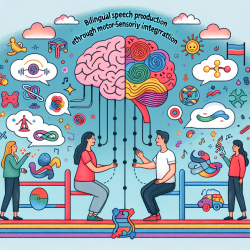Introduction
Fucosidosis is a rare lysosomal storage disorder caused by a deficiency of the enzyme alpha-L-fucosidase. This genetic condition leads to the accumulation of fucose-containing glycolipids in various organs, resulting in a spectrum of symptoms including developmental delays, muscle stiffness, and recurrent infections. With only about 100 reported cases worldwide, understanding and managing this condition presents unique challenges for healthcare practitioners.
The Case Study
The article "Diagnosis and Supportive Management of Fucosidosis: A Case Report" presents the case of a 16-year-old girl diagnosed with fucosidosis at the age of two and a half. Despite the severe manifestations of the disease, a comprehensive multi-systemic supportive care approach has enabled her to survive into her second decade, a notable achievement given the typical prognosis.
Key Takeaways for Practitioners
The case study underscores the importance of early diagnosis and a tailored management plan that addresses the unique needs of each patient. Here are some critical insights:
- Early Diagnosis: Utilizing diagnostic tools such as MRI, MRS, and genetic testing can lead to early identification of fucosidosis, allowing for timely intervention.
- Multi-Systemic Support: A comprehensive care plan that includes respiratory management, neurological support, and nutritional therapy can significantly improve quality of life.
- Collaborative Care: Coordination among various specialists, including neurologists, geneticists, and speech therapists, is crucial for addressing the complex needs of fucosidosis patients.
Encouraging Further Research
While the case study provides valuable insights, it also highlights the need for further research into the long-term outcomes of different management strategies. Practitioners are encouraged to explore innovative therapies and contribute to the growing body of knowledge on fucosidosis.
Conclusion
Fucosidosis presents significant challenges, but with a dedicated and informed approach, practitioners can make a meaningful difference in the lives of affected children. By embracing a data-driven and collaborative care model, we can continue to improve outcomes and provide hope for families facing this rare condition.
To read the original research paper, please follow this link: Diagnosis and Supportive Management of Fucosidosis: A Case Report.










